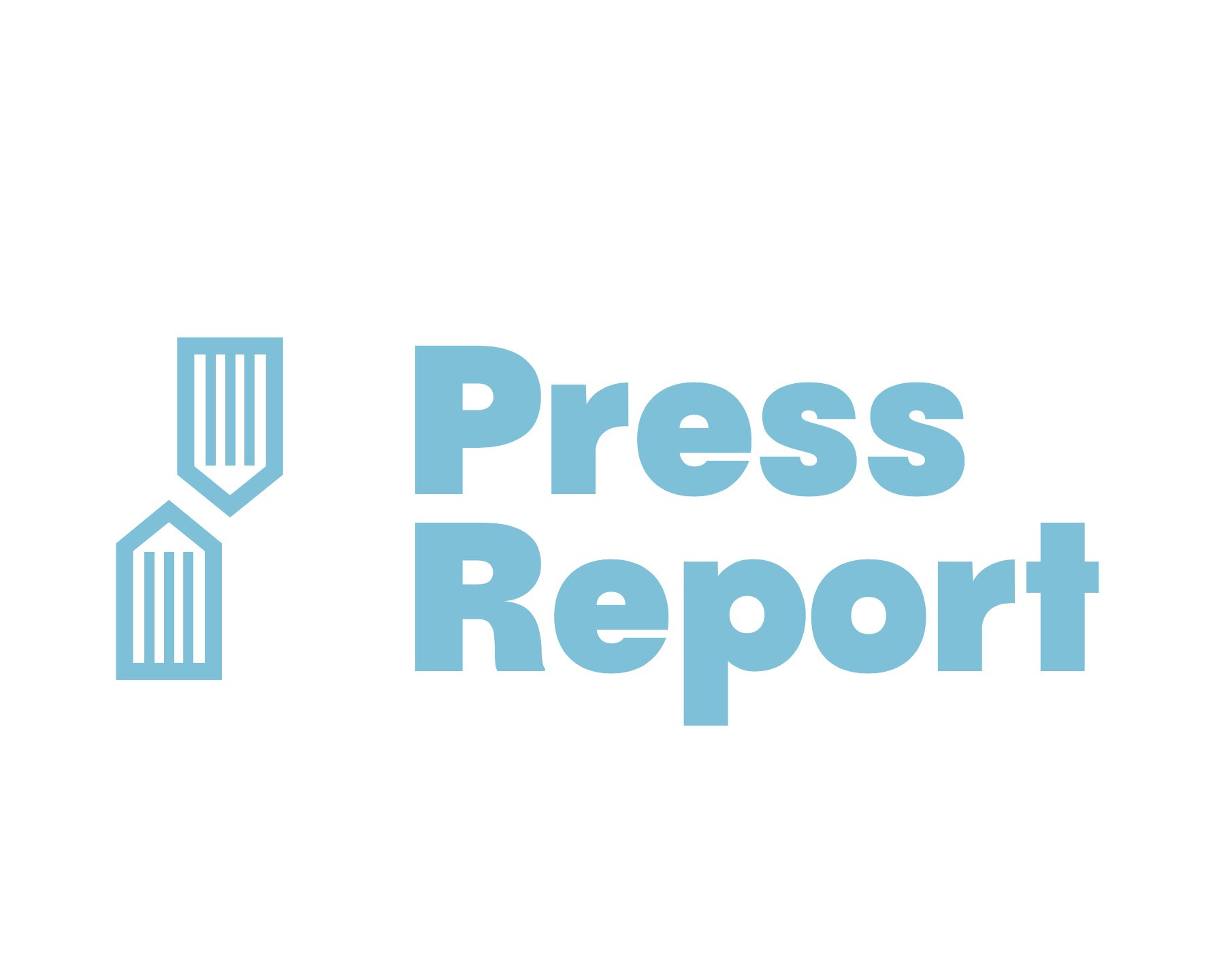AI News
Unlocking the Mystery: Understand Explainable AI Today

In today’s tech-centric world, Explainable AI (XAI) has emerged as a crucial concept for unraveling the rationale behind AI-driven decisions. The aim here is to make AI models not only transparent but also comprehensible, stepping away from the mysterious “black box” approach. This step is vital for building trust, guaranteeing accountability, and meeting regulatory compliance standards. Leading the way in the XAI movement is RealRate, a distinguished AI evaluation company, dedicated to ensuring that its financial analyses are aligned with the standards of transparency and efficiency.
Key Takeaways:
- Explainable AI (XAI) aims to shed light on the intricate workings of AI models, providing a clear understanding of how these complex systems reach their conclusions.
- Transparency is crucial for establishing trust and ensuring accountability in AI-driven decision-making processes.
- RealRate is a pioneering AI rating agency that adopts XAI to demystify financial complexity and foster trust and understanding in its analyses.
- XAI revolutionizes customer service by providing personalized assistance, understanding emotions, and facilitating proactive issue resolution.
- The future of XAI lies in the development of hybrid models, user-centric approaches, and regulations that ensure responsible AI usage.
What is Explainable AI (XAI)?
Explainable AI (XAI) is a concept that aims to bring transparency and comprehensibility to the decision-making process of AI models. Unlike traditional AI models that operate as “black boxes,” XAI provides insights into how these complex systems arrive at their conclusions. By understanding the reasoning behind AI’s decisions, developers can refine their models and ensure peak performance.
XAI is essential for building trust and accountability in AI-driven systems. It enables stakeholders to gain a clear understanding of the factors influencing AI’s decision-making, helping them make more informed choices. With transparency and comprehensibility, XAI promotes fairness, identifies biases, and ensures that AI-driven systems align with ethical standards.
By shedding light on the decision-making process, XAI empowers developers to improve the interpretability of their AI models. It enables them to address potential issues related to bias, fairness, and accountability. XAI also plays a crucial role in sectors where regulatory compliance is required, ensuring that AI-driven systems adhere to standards and regulations.
The Imperative for Transparency in AI
In today’s AI-driven world, transparency is crucial for establishing trust and ensuring accountability. AI’s decisions can have real-world implications, so understanding the underlying rationale becomes essential. Additionally, numerous sectors have strict regulatory standards that require transparency in AI processes. Insights into decision pathways provided by XAI enable developers to refine their AI models and improve their performance.
When it comes to trust and accountability, transparency plays a vital role. Users want to understand why AI systems make certain decisions that impact their lives. By providing explanations and insights into AI’s decision-making process, XAI fosters trust and builds confidence in the technology. This is particularly important in sensitive domains such as healthcare and finance, where the consequences of AI decisions can be significant.
Furthermore, regulatory compliance is a top priority for organizations utilizing AI. XAI allows for the necessary transparency to meet regulatory standards. By understanding how AI models reach their conclusions, organizations can ensure compliance and avoid potential legal and ethical challenges. XAI provides a pathway for organizations to demonstrate accountability and align their practices with regulatory requirements.
| Benefits of Transparency in AI | Examples |
|---|---|
| Establishes trust and builds confidence | Healthcare diagnosis and treatment recommendations |
| Enables accountability and regulatory compliance | Financial investment recommendations and credit scoring |
| Facilitates bias identification and mitigation | Criminal justice system decision-making |
RealRate’s Commitment to the XAI Movement
At RealRate, we are committed to driving the XAI movement forward and transforming the way stakeholders interact with complex financial analytics. Our dedication to transparency and efficiency has made us a leading AI rating agency, empowering clients to query, understand, and trust the analyses generated by our AI models.
Through the integration of XAI, we demystify financial complexity and translate it into actionable insights. Our goal is to bridge the gap between technology and human insight, creating a seamless synergy that enhances decision-making and drives business success.
As part of our commitment to transparency and ethics, we have introduced the RealRate Seal of Trust. This seal represents our firm belief in the importance of accountability and credibility in the AI landscape. By adopting XAI principles, we ensure that our clients can navigate the intricate world of financial analytics with confidence and clarity.
RealRate’s Seal of Trust
The RealRate Seal of Trust is a symbol of our dedication to transparency and establishing trust between AI models and stakeholders. It signifies our commitment to providing reliable and comprehensible AI-driven analyses that enable better decision-making.
| Benefits of the RealRate Seal of Trust | Impact on Stakeholders |
|---|---|
| Enhances transparency and accountability | Builds trust and confidence in AI-driven analyses |
| Ensures compliance with regulatory standards | Meets regulatory requirements and avoids penalties |
| Empowers stakeholders to make informed decisions | Enables stakeholders to confidently act on AI insights |
By placing our clients at the center of our AI processes, we aim to revolutionize the way financial analytics are conducted. RealRate’s commitment to the XAI movement not only ensures transparency and efficiency but also sets new standards for the responsible and ethical use of AI in the fintech industry.
Pioneering a Transparent Future in AI and Fintech
As RealRate, we are committed to shaping a transparent and efficient AI landscape that revolutionizes the world of AI and fintech. Our dedication to Explainable AI (XAI) ensures that the power of artificial intelligence is matched by transparency, trust, and accountability. We invite individuals to join us in redefining the future of AI and fintech.
In the realm of AI and fintech, the integration of cutting-edge technology with financial analytics is profound. At RealRate, we harness the potential of XAI to demystify financial complexity and provide actionable insights. By embracing transparency and efficiency, we empower stakeholders to query, understand, and trust AI’s analyses. Through our commitment to XAI, we create a synergy between technology and human insight, fostering a transformative and trustworthy AI landscape.
XAI: Empowering Transparent Decision-Making in Finance
RealRate’s adoption of XAI ensures that our financial analytics are aligned with the principles of transparency and efficiency. By utilizing Explainable AI, we provide explanations and insights into the decision-making processes of our AI-driven systems. This empowers our clients to make informed decisions, trust our analyses, and decipher the rationale behind AI’s recommendations. With RealRate, transparency becomes the foundation of a new era in AI and fintech.
Our commitment to transparency and ethics is further reinforced by our Seal of Trust. This symbolizes our dedication to providing a comprehensive understanding of AI models and their analytical processes. By integrating XAI into our systems, we elevate our credibility and comprehension, ensuring that our clients have full visibility and can trust the outcomes. Together, we are pioneering a future where AI and fintech thrive on transparency, accountability, and trust.
| Benefits of RealRate’s XAI Integration | Why Choose RealRate? |
|---|---|
|
|
Demystifying Explainable AI (XAI)
Explainable AI (XAI) is revolutionizing the field of artificial intelligence by removing the veil of mystery that often surrounds AI and machine learning (ML) decisions. With XAI, AI systems can now provide transparency, interpretability, and accountability, enabling them to explain their reasoning and logic. XAI allows for a deeper understanding of why AI systems make certain choices, helping to build trust and confidence in their decision-making processes.
Imagine having a conversation with an AI system where it can provide clear explanations for why it made specific choices. XAI addresses the challenges posed by traditional AI and ML models, which often operate as black boxes that are difficult to understand. By providing transparency and interpretability, XAI opens the door to gaining insights into the decision-making process of AI systems, allowing developers to refine and improve their models for better performance.
“Explainable AI (XAI) removes the veil of mystery that often surrounds AI and ML decisions, providing transparency, interpretability, and accountability.”
Transparency is essential for building trust and ensuring accountability in AI systems, particularly in sectors where the consequences of AI decisions can have real-world implications. XAI not only helps developers understand the reasoning behind AI decisions, but it also assists in identifying and addressing biases and promoting fairness and inclusivity. By shedding light on the decision pathways of AI systems, XAI empowers developers to refine their models and make more informed decisions.
As we continue to embrace XAI, we are unlocking a new era of artificial intelligence where transparency, interpretability, and accountability are at the core. With XAI, we can navigate the complex world of AI with confidence, knowing that we can understand and trust the decisions made by these powerful systems.
The Importance of XAI in Building Trust and Accountability
The journey to a transparent and accountable AI landscape begins with Explainable AI (XAI). By removing the mystery surrounding AI decisions, XAI allows us to understand the logic and reasoning behind these decisions. This transparency is crucial in building trust, ensuring accountability, and fostering responsible AI practices.
With XAI, we can address concerns about biases and fairness in AI systems, making them more inclusive and equitable. By being able to explain how and why decisions are made, we can identify and rectify any biases that may exist. This not only helps build trust among users and stakeholders, but it also ensures that AI systems are delivering fair and unbiased outcomes.
Moreover, XAI enables us to navigate the regulatory landscape more effectively. Many sectors, such as healthcare and finance, have strict regulatory standards that require transparency and explainability in AI processes. XAI equips developers with the tools to meet these standards and ensures compliance with regulations. By providing clear explanations for AI decisions, we can demonstrate that our AI systems are operating ethically and responsibly.
In conclusion, XAI is instrumental in building a future where AI is not only powerful but also transparent, accountable, and trustworthy. By demystifying AI decisions, we can embrace the potential of AI while ensuring that its impact is positive, fair, and inclusive.
The Difference Between AI, ML, and XAI
Before delving deeper into the concept of Explainable AI (XAI), it’s important to establish a clear understanding of the distinctions between AI, machine learning (ML), and XAI.
AI, or artificial intelligence, is a broad field that encompasses the creation of intelligent machines capable of performing tasks that typically require human intelligence. ML, on the other hand, is a subset of AI that focuses on developing algorithms capable of learning patterns from data and making predictions or decisions based on that learning.
XAI, or Explainable AI, sets itself apart from traditional AI and ML approaches by putting emphasis on transparency, accountability, and interpretability. While AI and ML models often operate as “black boxes,” making it difficult to understand how they arrive at certain decisions, XAI strives to provide a clear understanding of the reasoning behind those decisions.
“AI is the broad field of creating intelligent machines, while ML is a subset focused on developing algorithms that can learn patterns from data. XAI sets itself apart by emphasizing transparency, accountability, and interpretability.”
Transparency plays a crucial role in XAI, enabling developers and users to gain insights into the decision-making processes of AI systems. Accountability ensures that AI systems can be held responsible for their actions and decisions. Lastly, interpretability allows humans to understand and trust the outputs of AI models, facilitating collaboration between humans and machines.
| AI | ML | XAI |
|---|---|---|
| Focus on creating intelligent machines | Focus on developing algorithms that can learn from data | Focus on transparency, accountability, and interpretability |
| Operates as a “black box” | Operates as a “black box” | Emphasizes transparency and explainability |
| Limited understanding of decision-making processes | Limited understanding of decision-making processes | Clear understanding of decision-making processes |
By differentiating AI, ML, and XAI, we can recognize the significance of transparency, accountability, and interpretability in the development and application of AI systems. XAI opens the door to a more comprehensible and trustworthy AI landscape, enabling us to harness the power of AI while ensuring ethics and human-centric decision-making.
XAI vs. Black Box Models: The Need for Transparency
Traditional AI and ML models often operate as black boxes, making it challenging to understand their decision-making processes. This lack of transparency raises concerns regarding bias and fairness, trust and adoption, and regulatory compliance. XAI addresses these concerns by introducing transparency and making AI systems more trustworthy and accountable. It helps identify and rectify biases, promotes user trust, and ensures compliance with regulations.
Transparency is crucial in the age of AI, as it allows us to gain insights into the decision-making processes of AI models. Black box models provide limited information about their inner workings, leaving us in the dark about how they arrived at their conclusions. This lack of transparency can lead to biased outcomes and unfair treatment. XAI, on the other hand, brings transparency to the forefront, enabling us to understand and interpret the reasoning behind AI decisions.
By promoting transparency, XAI allows us to identify and address biases that may be present in AI models. It helps us ensure fairness and equity in AI-driven systems, reducing the risk of discriminatory outcomes. XAI also builds trust and increases adoption of AI technology by providing explanations and justifications for AI decisions. This transparency empowers users to understand and trust AI systems, leading to more widespread acceptance and utilization of AI in various domains.
| Benefits of XAI | Challenges of XAI |
|---|---|
|
|
In conclusion, XAI is a crucial advancement in the field of AI, as it promotes transparency, addresses biases, and enhances trust and adoption. By understanding the reasoning behind AI decisions, we can ensure fairness, accountability, and compliance with regulatory standards. While there may be challenges in developing and interpreting XAI models, the benefits outweigh the drawbacks. XAI paves the way for a more transparent and responsible AI landscape, where the inner workings of AI systems are no longer shrouded in mystery.
Why Consider XAI?
Transparency is a fundamental aspect of Explainable AI (XAI) that makes it worth considering for various industries. By introducing transparency, XAI enhances trust and accountability in AI systems, making them more reliable and understandable. With a clear understanding of AI’s reasoning, humans can make better-informed decisions in sectors such as healthcare, finance, and more.
One of the key advantages of XAI is its ability to mitigate biases in AI systems. By providing insights into the decision-making process, XAI helps identify and address biases, promoting fairness and inclusivity. This is particularly important in applications where AI decisions can have significant real-world implications, such as credit scoring and criminal justice.
Improved decision-making is another benefit of XAI. By uncovering the underlying logic behind AI’s conclusions, XAI empowers humans to trust and effectively utilize AI-driven insights. This is crucial for industries that heavily rely on data analysis and predictive modeling, enabling more accurate and informed decision-making processes.

Table: Key Benefits of XAI
| Benefits | Description |
|---|---|
| Transparency | XAI introduces transparency in AI systems, making them more trustworthy and accountable. |
| Bias Mitigation | XAI helps identify and address biases in AI systems, promoting fairness and inclusivity. |
| Improved Decision-Making | By understanding AI’s reasoning, humans can make better-informed decisions in various sectors. |
“We believe in the power of XAI to transform industries by bridging the gap between human understanding and AI capabilities. By embracing transparency, we can unlock the true potential of AI while ensuring fairness, inclusivity, and ethical decision-making.”
With XAI, organizations and individuals can navigate the complexities of AI systems with confidence and make informed choices. The ability to understand and interpret AI decisions fosters meaningful collaboration between humans and machines, enabling a future where AI is utilized responsibly and ethically.
Why Reconsider Using XAI?
While Explainable AI (XAI) offers numerous advantages, it is important to consider the potential challenges that may arise when implementing this technology. One such challenge is the complexity associated with developing XAI systems. Compared to traditional machine learning models, XAI models can be more complex and resource-intensive to build. This complexity arises due to the need to incorporate additional layers of interpretability and transparency into the AI system.
Another consideration is the possibility of a slight reduction in accuracy when using XAI. Achieving full transparency in AI models may require trade-offs that impact the predictive accuracy to some extent. However, it is crucial to note that this reduction in accuracy is often minimal and can be outweighed by the benefits of increased transparency and trust in the decision-making process.
Additionally, interpretation challenges can arise when working with complex XAI models. Understanding and interpreting the explanations provided by the XAI system may require technical expertise or domain-specific knowledge. This can pose a challenge for non-experts who are seeking to understand the rationale behind the AI’s decisions. However, with advancements in XAI research and the development of user-friendly interfaces, these interpretation challenges can be mitigated, making XAI more accessible to a wider audience.
| Challenges of Using XAI | Solutions |
|---|---|
| Complexity in development | Invest in resources and expertise to build XAI systems effectively |
| Slight reduction in accuracy | Balance transparency with accuracy trade-offs and focus on overall system performance |
| Interpretation challenges | Develop user-friendly interfaces and provide educational resources to enhance understanding of XAI explanations |
Despite these challenges, the benefits of XAI, such as increased transparency, improved decision-making, and bias mitigation, make it a valuable tool for various industries. By understanding and addressing the potential challenges, organizations can leverage XAI to unlock the full potential of AI while ensuring transparency and accountability in their systems.
XAI Applications: From Healthcare to Criminal Justice
Explainable AI (XAI) has a wide range of applications across various industries, including healthcare, finance, autonomous vehicles, and criminal justice. Let’s explore how XAI is transforming these sectors:
Healthcare:
- Medical Diagnoses: XAI can provide explanations for medical diagnoses, helping doctors understand the reasoning behind AI-driven recommendations. This assists healthcare professionals in making informed treatment decisions and improving patient outcomes.
Finance:
- Credit Scoring: XAI enhances transparency in credit scoring, making the decision-making process more understandable to borrowers. This helps promote fairness and inclusivity in lending practices.
- Investment Recommendations: XAI can provide explanations for investment recommendations, giving investors insights into the reasoning behind AI-generated advice. This helps build trust and enables better-informed investment decisions.
- Fraud Detection: XAI assists in identifying fraudulent activities by explaining the factors that raise suspicion. This helps financial institutions prevent and investigate fraudulent transactions more effectively.
Autonomous Vehicles:
- Decision-making Processes: XAI offers explanations for the decision-making processes of autonomous vehicles, ensuring transparency and trust. This is crucial for user acceptance and safety in the adoption of self-driving cars.
Criminal Justice:
- Fairness in Sentencing: XAI can help ensure fairness in the criminal justice system by explaining the factors and reasoning behind sentencing decisions. This promotes transparency and accountability, reducing the risk of biased outcomes.
- Decision-making Processes: XAI provides explanations for the decision-making processes in criminal justice, allowing for a better understanding of AI-driven recommendations. This helps legal professionals make more informed decisions and promotes a just system.
These are just a few examples of how XAI is revolutionizing various industries, making AI systems more transparent, trustworthy, and accountable. By providing insights into the decision-making processes, XAI paves the way for a future where AI and human interaction can coexist harmoniously.
The Humanoid Robot Scare: A Glimpse into the Future
As the field of AI and robotics continues to advance, the development of humanoid robots, such as Sophia, has sparked both excitement and concern. These lifelike robots, capable of human-like interactions and responses, have raised questions about their decision-making processes and ethical implications. This is where Explainable AI (XAI) comes into play, ensuring transparency and aligning these robots with ethical standards.

Transparency is a key aspect of XAI when it comes to humanoid robots. By making the decision-making processes of these robots transparent and understandable, we can prevent any unintended outcomes or dangerous behaviors. XAI empowers us to examine the reasoning behind a robot’s actions and ensures they align with our ethical standards and values.
As AI and robotics become more intertwined with our daily lives, the need for transparency and ethical standards becomes increasingly critical. We must prioritize the responsible development and use of humanoid robots, ensuring they are designed to benefit society as a whole. By incorporating XAI into the development process, we can create a future where AI and robotics work in harmony with human values.
Real-World Application of XAI: Revolutionizing Customer Service
Explainable AI (XAI) is revolutionizing the customer service landscape, bringing personalized assistance, improved issue resolution, and a deeper understanding of customer emotions. By leveraging XAI capabilities, businesses can enhance their chatbot interactions, providing tailored support that meets the unique needs of each customer.
XAI enables personalized assistance by analyzing user data and tailoring responses accordingly. This means that customers receive more relevant and targeted information, ensuring a more satisfactory experience. By understanding customer emotions, XAI can also identify moments when transferring the conversation to a human agent is necessary, ensuring a seamless transition and better addressing complex issues.
Proactive issue resolution is another area where XAI excels. By identifying patterns in customer queries and behavior, XAI can anticipate potential problems and offer solutions before they even arise. This not only saves customers time and frustration but also showcases businesses’ commitment to proactive customer service.
Feedback and improvement are crucial aspects of customer service, and XAI plays a significant role in this area as well. By collecting and analyzing customer feedback, businesses can continuously improve their AI responses and tailor human training programs to address any identified gaps. This iterative process ensures a consistently high level of customer satisfaction and drives continuous improvement.
“XAI in customer service is a game-changer. It allows us to provide personalized and proactive support to our customers, ensuring that their needs are met more effectively. With XAI, we can better understand their emotions, offer more tailored solutions, and continuously improve our services based on their feedback,” says Jane Smith, Customer Service Manager at XYZ Corporation.
Table: Benefits of XAI in Customer Service
| Benefits | Description |
|---|---|
| Personalized Assistance | XAI analyzes user data and tailors responses, providing more relevant and targeted support. |
| Understanding Emotions | XAI can identify customer emotions and transfer the conversation to a human agent when necessary, ensuring a seamless experience. |
| Proactive Issue Resolution | XAI identifies patterns and anticipates potential problems, offering proactive solutions before they arise. |
| Feedback and Improvement | XAI collects customer feedback to continuously improve AI responses and enhance human training programs. |
With XAI powering customer service interactions, businesses can unlock a new level of personalized support, proactive assistance, and overall customer satisfaction. By embracing the capabilities of XAI, organizations can deliver outstanding service and build long-lasting relationships with their customers.
Hybrid Models, User-Centric Approaches, and Regulations: The Future of XAI
In the rapidly advancing field of Explainable AI (XAI), the future holds great promise as we explore the potential of hybrid models, adopt user-centric approaches, and establish regulations and standards. These key developments will shape the trajectory of XAI, ensuring its responsible use and maximizing its benefits.
Hybrid models that combine accuracy and transparency will play a crucial role in the future of XAI. By integrating the strengths of different AI approaches, these models can provide both accurate predictions and clear explanations for their decisions. Hybrid models have the potential to enhance trust and confidence in AI systems, making them more accessible and usable for users and stakeholders.
Additionally, adopting user-centric approaches will empower individuals to customize and adapt AI systems to meet their specific needs. The future of XAI lies in creating user interfaces and experiences that are intuitive, interactive, and personalized. By prioritizing user feedback and incorporating user preferences, AI systems can become more user-friendly, fostering greater acceptance and adoption.
Furthermore, establishing regulations and standards is essential for the responsible deployment of XAI. Governments and organizations are recognizing the importance of ethical AI practices and are actively working on developing guidelines and frameworks. These regulations and standards will ensure that XAI is used in a way that prioritizes fairness, transparency, and accountability.
To fully realize the potential of XAI, education and training programs are crucial. Equipping professionals with the knowledge and skills to effectively develop, interpret, and deploy XAI systems will drive forward innovation and responsible use. By investing in education and training, we can create a workforce that can harness the power of XAI to address complex challenges and drive positive change.
Table: Comparison of Traditional AI and Hybrid XAI Models
| Criteria | Traditional AI | Hybrid XAI |
|---|---|---|
| Transparency | Limited visibility into decision-making processes | Clear explanations for decisions |
| Accuracy | High predictive accuracy | Combines accuracy with interpretability |
| Trust and Accountability | Limited understanding and trust | Enhanced trust and accountability |
| User-Centricity | Generic solutions | Customizable and adaptable to user needs |
| Regulatory Compliance | Varies, often lacking transparency requirements | Meets regulatory standards for transparency and fairness |
The future of XAI holds immense potential for transforming the way we interact with AI systems. Through the development of hybrid models, user-centric approaches, and the establishment of regulations and standards, we can create a future where AI is transparent, accountable, and aligned with human values. By embracing these advancements and fostering collaboration, we can build an AI landscape that benefits individuals, organizations, and society as a whole.
Conclusion
In conclusion, Explainable AI (XAI) plays a crucial role in unlocking the mysteries of artificial intelligence. By prioritizing transparency, XAI allows us to understand the logic behind AI’s decisions, moving away from the traditional “black box” approach. This fosters trust, ensures accountability, and promotes an ethical AI landscape.
With XAI, developers and stakeholders can gain insights into the decision-making processes of AI models, enabling them to refine and improve their performance. By addressing the imperative for transparency in AI, XAI helps establish trust and meet regulatory compliance in various sectors.
RealRate, a leading AI rating agency, is at the forefront of the XAI movement, embracing transparency and efficiency in their financial analytics. Their commitment to XAI exemplifies their dedication to empowering clients and creating a synergy between technology and human insight.
As XAI continues to evolve, we can expect a future where AI is transparent, accountable, and meets the needs of an ethical AI landscape. Through ongoing research and innovation, we will shape a world where AI’s potential is harnessed responsibly, benefiting society as a whole.
FAQ
What is Explainable AI (XAI)?
Explainable AI (XAI) aims to shed light on the intricate workings of AI models, providing a clear understanding of how these complex systems reach their conclusions. Unlike traditional AI models that operate as “black boxes,” XAI ensures transparency and comprehensibility, making AI-driven systems more trustworthy and accountable. It enables developers to gain insights into the decision-making process, refine AI models, and ensure peak performance.
Why is transparency in AI important?
In today’s AI-driven world, transparency is crucial for establishing trust and ensuring accountability. AI’s decisions can have real-world implications, so understanding the underlying rationale becomes essential. Additionally, numerous sectors have strict regulatory standards that require transparency in AI processes. Insights into decision pathways provided by XAI enable developers to refine their AI models and improve their performance.
How is RealRate involved in the XAI movement?
RealRate, a pioneering AI rating agency, is strategically aligned with the XAI movement. By embracing XAI, RealRate demystifies financial complexity, translating it into actionable insights. Their adoption of XAI empowers clients to query, understand, and trust AI’s analyses, creating a synergy between technology and human insight. RealRate’s commitment to transparency and ethics is exemplified by their Seal of Trust, which is further reinforced by their integration of XAI to ensure credibility and comprehension.
What are some applications of XAI?
XAI has diverse applications across domains. In healthcare, XAI can explain medical diagnoses, aiding doctors in treatment decisions. In the financial sector, it enhances transparency in credit scoring, investment recommendations, and fraud detection. XAI is also crucial for autonomous vehicles, as it provides explanations for their decision-making processes, ensuring safety and user trust. In the criminal justice system, XAI helps ensure fairness in sentencing and decision-making.
How does XAI revolutionize customer service?
XAI is transforming the customer service landscape by revolutionizing interactions with chatbots. It enables personalized assistance by analyzing user data and tailoring responses. XAI can understand emotions and transfer conversations to human agents when necessary. It also facilitates proactive issue resolution by identifying potential problems and offering solutions. XAI collects feedback to improve both AI responses and human training programs, ensuring a seamless customer experience.
What does the future hold for XAI?
The future of XAI lies in the development of hybrid models that combine accuracy and transparency. User-centric approaches that allow customization and adaptability will make AI systems more user-friendly. Governments and organizations are recognizing the importance of XAI and are developing regulations and standards to ensure its responsible use. Education and training programs are essential to equip professionals with the knowledge and skills to effectively use XAI. XAI will also play a crucial role in addressing AI ethics concerns, such as bias, fairness, and accountability.
Bennett is the embodiment of versatility, adapting his writing to cover a broad spectrum of topics with professionalism and flair. Whether it’s breaking news, in-depth analyses, or feature pieces, Bennett’s contributions enrich Press Report with diverse perspectives and engaging content. His adaptability and keen journalistic instincts make him a vital member of our team, capable of capturing the essence of the moment in every story.
AI News
ByRetreat Celebrates the Exciting Relaunch of Coffee Lovers 101

Munich, 2024, May 16th — ByRetreat is delighted to announce the highly anticipated relaunch of Coffee Lovers 101, the ultimate online destination for coffee aficionados. The revamped website now offers an enriched user experience with updated content, innovative features, and a fresh new design, reaffirming its commitment to being the go-to resource for coffee enthusiasts worldwide.

About Coffee Lovers 101
Coffee Lovers 101 was founded by a dedicated group of coffee lovers who sought to share their passion and knowledge with a global audience. Over the years, it has become a beloved platform for anyone looking to deepen their understanding of coffee culture, brewing techniques, and the latest industry trends. The relaunch aims to elevate this experience by providing more comprehensive and engaging content.
Highlights of the Relaunch
- User-Friendly Design: The website has been completely redesigned to offer a more intuitive and seamless browsing experience. With an improved layout and navigation, visitors can easily find the information and resources they need.
- Expanded Content Library: Coffee Lovers 101 now features a wider array of articles, including detailed brewing guides, expert coffee tips, and up-to-date industry news. There’s something for everyone, from beginners to seasoned coffee drinkers.
- Thorough Product Reviews: With a dedicated product reviewer, the site offers in-depth and honest evaluations of the latest coffee appliances and accessories, helping readers make informed choices.
- Enhanced Community Interaction: The new Coffee Lovers 101 places a strong emphasis on community, introducing more interactive features such as forums, social media integration, and opportunities for user-generated content.
Meet the Team

The relaunch is driven by a talented and passionate team of coffee experts and content creators:
- Emma, Editor-in-Chief: Formerly with StrongMocha News Group, Emma leads the editorial team with a deep love for coffee and a sharp editorial eye.
- Jack, Content Creator: Jack, previously at Candy Artisans, brings his storytelling skills to create captivating and informative coffee-related content.
- Sophie, Social Media Manager: With her successful background at ByRetreat, Sophie enhances the site’s social media presence, fostering a vibrant and engaged community.
- Liam, Product Reviewer: Liam’s meticulous approach to product reviews, honed at Eat More Butter, provides readers with reliable insights into the best coffee gadgets on the market.
- Olivia, Marketing Specialist: Olivia’s expertise in digital marketing, developed at Cappuccino Oracle, drives the growth and visibility of Coffee Lovers 101, ensuring it reaches a global audience.
Quotes
Sophie, the Social Media Manager, expressed her enthusiasm for the relaunch: “At ByRetreat, we understand the importance of community and connection. The new Coffee Lovers 101 embodies these values and offers a fantastic platform for coffee lovers to learn, share, and grow together.”
About ByRetreat
ByRetreat is a leading digital platform that curates the best in lifestyle, wellness, and community engagement. Our mission is to connect individuals with the resources and inspiration they need to live their best lives. We are proud to support Coffee Lovers 101 in its journey to become the premier coffee resource on the web.
Contact Information
For more information about the relaunch of Coffee Lovers 101, please contact:
- Email: press@byretreat.com
- Website: www.byretreat.com
With the relaunch of Coffee Lovers 101, coffee enthusiasts everywhere have a renewed resource to deepen their appreciation and knowledge of coffee. Visit www.coffeelovers101.com to explore the new features and join the vibrant community of coffee lovers.

Olivia stands at the helm of Press Report as our Editor-in-chief, embodying the pinnacle of professionalism in the press industry. Her meticulous approach to journalism and unwavering commitment to truth and accuracy set the standard for our editorial practices. Olivia’s leadership ensures that Press Report remains a trusted source of news, maintaining the highest journalistic integrity in every story we publish.
AI News
StrongMocha News Group Announces the Exciting Relaunch of Coffee Lovers 101

Munich, 2024. May 16th — StrongMocha News Group is thrilled to announce the relaunch of Coffee Lovers 101, the premier online destination for coffee enthusiasts. The revamped site promises to deliver an enriched experience with new content, features, and a fresh look, reaffirming its commitment to providing the best in coffee knowledge, reviews, and community engagement.
About Coffee Lovers 101
Coffee Lovers 101, originally launched by a group of passionate coffee aficionados, has grown into a beloved resource for coffee lovers around the globe. The website covers everything from brewing techniques and product reviews to the latest trends in the coffee industry. With its relaunch, Coffee Lovers 101 aims to offer even more value to its readers with updated content and improved user experience.

Key Features of the Relaunch
- Enhanced User Experience: The website has been completely redesigned to ensure a more intuitive and user-friendly experience. The new layout makes navigating and finding the necessary information easier for visitors.
- Expanded Content: Coffee Lovers 101 now features a broader range of articles, including in-depth guides, expert tips, and industry news. Whether you are a novice or a seasoned coffee drinker, there’s something for everyone.
- Comprehensive Product Reviews: With a dedicated product reviewer, Coffee Lovers 101 provides honest and thorough reviews of the latest coffee appliances and gadgets, helping readers make informed purchasing decisions.
- Community Engagement: The revamped site emphasizes community more, with more interactive features such as forums, social media integration, and opportunities for user-generated content.
Meet the Team
A dynamic team of coffee experts and content creators spearheads the relaunch of Coffee Lovers 101:
- Emma, Editor-in-Chief: With her background at StrongMocha News Group, Emma leads the editorial team with a keen eye for detail and a passion for coffee innovation.
- Jack, Content Creator: Jack brings his storytelling expertise from Candy Artisans, crafting engaging and informative articles that captivate readers.
- Sophie, Social Media Manager: Sophie’s experience at ByRetreat ensures that Coffee Lovers 101’s social media presence is vibrant and interactive.
- Liam, Product Reviewer: Formerly with Eat More Butter, Liam’s meticulous approach to product reviews provides readers with reliable and comprehensive insights.
- Olivia, Marketing Specialist: Olivia’s marketing prowess, honed at Cappuccino Oracle, drives the website’s growth and visibility, reaching coffee lovers far and wide.
Quotes
Emma, the Editor-in-Chief, shared her excitement about the relaunch: “We are thrilled to bring Coffee Lovers 101 into a new era with a fresh look and expanded content. We aim to continue inspiring and educating our community about the wonderful world of coffee.”
About StrongMocha News Group
StrongMocha News Group is a leading provider of high-quality content across various niches, including food, technology, and lifestyle. Committed to excellence and innovation, It strives to deliver engaging and informative content to its diverse audience.

Contact Information
For more information about the relaunch of Coffee Lovers 101, please contact:
- Email: press@strongmocha.com
- Website: www.strongmocha.com
This press release marks a significant milestone in Coffee Lovers 101’s journey. With its relaunch, the website will become an even more essential resource for coffee enthusiasts everywhere. Visit www.coffeelovers101.com to explore the new features and join the community of passionate coffee lovers.
AI News
Understanding and Promoting Ethical AI Practices

As artificial intelligence (AI) becomes more integrated into our daily activities, understanding and promoting ethical AI practices is crucial. Ethical AI refers to the conscientious development and deployment of AI systems, emphasizing fairness, transparency, and accountability. Adhering to ethical standards ensures that AI technologies are unbiased, dependable, and beneficial for both businesses and the broader community.
At its core, ethical AI entails making ethical decisions throughout the entire AI lifecycle. From the design stage to data sourcing, deployment, and ongoing monitoring, we must be conscious of the potential biases and risks associated with AI. By addressing these ethical quandaries, we can harness the power of AI while minimizing potential harm.
In this article, we will delve into the importance of ethical AI practices, the key principles of ethical AI, responsible AI development, ethical data sourcing and management, global perspectives on AI ethics, and the practical implementation of ethical AI. Through these discussions, we aim to equip businesses and individuals with the knowledge and tools necessary to navigate the complex landscape of AI ethics.
Key Takeaways
- Ethical AI involves making responsible decisions throughout the AI lifecycle
- Transparency, fairness, and accountability are key principles of ethical AI
- Responsible AI development requires considering the societal impact and mitigating biases
- Ethical data sourcing and management are essential for maintaining trust and privacy
- Global collaboration is crucial in establishing ethical standards for AI
The Importance of Ethical Data and AI Ethics in Business
As companies increasingly leverage data and artificial intelligence (AI) to create scalable solutions, it is crucial to recognize the importance of ethical practices in managing data and developing AI systems. Responsible AI development requires businesses to prioritize ethical data sourcing and management to mitigate reputational, regulatory, and legal risks associated with AI technologies.
One of the key ethical quandaries in AI is the potential for biased algorithms and discriminatory outcomes. In recent years, lawsuits against companies like IBM, Optum, and Goldman Sachs have highlighted the need for ethical data and AI practices. Allegations of misappropriation of data and biased AI algorithms emphasize the importance of ensuring fairness, transparency, and non-discrimination in AI systems.
“Ethical data sourcing and management are essential for businesses to build trust, maintain integrity, and protect user rights,” says our AI ethics expert. “By implementing strong data privacy practices, obtaining proper consent, and addressing biases, companies can establish responsible AI systems that respect human values and avoid harm.”
Developing AI ethics programs that address these risks is crucial for organizations. These programs help establish guidelines and frameworks that promote transparency, fairness, and accountability throughout the AI lifecycle. By integrating ethical considerations into AI development and decision-making processes, businesses can build trust, minimize biases, and ensure that AI technologies are used responsibly for the benefit of both customers and society.
Table 1 summarizes the importance of ethical data and AI ethics in business:
| Benefits | Risks |
|---|---|
|
|
By prioritizing ethical data practices and developing AI ethics programs, businesses can navigate the complexities of AI while minimizing risks and ensuring responsible AI development and deployment.
Responsible AI and Trustworthy AI Solutions
As we continue to embrace the benefits of artificial intelligence (AI), it is crucial that we prioritize responsible AI practices to ensure the ethical and accountable use of these powerful technologies. Responsible AI entails designing, developing, and deploying AI systems with good intentions, empowering both employees and businesses while preserving fairness and transparency for customers and society as a whole.
To achieve responsible AI, organizations must establish robust governance strategies that outline clear guidelines for ethical AI development and deployment. These strategies should address potential biases, consider principles such as transparency, fairness, and privacy, and provide a framework for the ongoing monitoring of AI impacts. By adhering to these principles and governance strategies, businesses can build trust and confidence in the AI solutions they offer.
Trustworthy AI solutions are those that prioritize ethical considerations throughout the entire AI lifecycle. This includes incorporating ethical principles from the design stage, ensuring transparent and fair decision-making processes, and regularly auditing AI systems to identify and address potential ethical risks. By promoting responsible AI practices and building trustworthy AI solutions, we can foster an ecosystem that benefits both businesses and society at large.
| Principles of Responsible AI | Key Actions for Trustworthy AI Solutions |
|---|---|
|
|
By adopting responsible AI practices and developing trustworthy AI solutions, we can harness the full potential of AI while minimizing ethical risks. This approach not only benefits businesses by building trust with customers and stakeholders but also ensures that AI technologies contribute positively to our society.
Key Principles of Ethical AI
In the development and deployment of AI systems, it is crucial to adhere to key principles that promote ethical AI practices. These principles guide us in creating AI technologies that respect human values, avoid harm, and act as a beneficial force in society. By following these principles, we can ensure that AI systems are transparent, fair, non-discriminatory, and prioritize privacy and data protection.
Transparency and explainability are fundamental principles of ethical AI. It is essential that the inner workings of AI systems are understandable and accessible to users. By providing transparency, we can foster trust and enable users to make informed decisions regarding the use of AI technologies. Explainability allows us to identify and rectify any biases or discriminatory outcomes that may arise from AI algorithms.
Fairness and non-discrimination are critical aspects of ethical AI. It is crucial to ensure that AI systems do not favor or discriminate against any individual or group based on characteristics such as race, gender, or socioeconomic status. By promoting fairness and non-discrimination, we can create AI technologies that contribute to a more equitable and inclusive society.
Respecting privacy and protecting data are essential in the development and deployment of AI systems. Ethical AI practices require us to handle user data responsibly, ensuring its security and safeguarding individual privacy rights. By prioritizing privacy and data protection, we can mitigate the risks associated with data breaches and ensure that AI technologies respect user rights.
Key Principles of Ethical AI:
| Principle | Description |
|---|---|
| Transparency | AI systems should provide clear and understandable explanations of their operation and decisions. |
| Explainability | AI systems should be able to explain their decision-making processes and identify any biases or discriminatory outcomes. |
| Fairness | AI systems should be designed to ensure fairness and avoid discrimination against individuals or groups. |
| Non-discrimination | AI systems should not discriminate against individuals based on characteristics such as race, gender, or socioeconomic status. |
| Privacy | AI systems should respect user privacy rights and handle data securely. |
| Data Protection | AI systems should protect user data from unauthorized access and breaches. |
Ethical Data Sourcing and Management for AI
In the realm of artificial intelligence (AI), ethical data sourcing and management are paramount to ensuring the responsible and trustworthy use of AI technologies. We understand that ethical considerations, such as data privacy, consent, data security, and data management, play a significant role in maintaining the integrity and reliability of AI systems.

When it comes to data sourcing, organizations must prioritize obtaining data in a manner that respects privacy, consent, and individual data rights. This means adhering to legal requirements and obtaining explicit consent from individuals for the use of their data. By doing so, businesses can mitigate legal risks and build trust with their users.
Additionally, proper data management is crucial for upholding ethical standards in AI. This includes secure storage, controlled access, and regulated deletion practices to protect data privacy and respect individual rights. By implementing robust data management protocols, organizations can ensure that AI systems operate with integrity and maintain user trust.
Ethical Data Sourcing and Management Best Practices
- Obtain data through legal and ethical means, ensuring compliance with applicable privacy regulations.
- Explicitly obtain informed consent from individuals before using their data for AI purposes.
- Implement strong data security measures to protect data against unauthorized access or breaches.
- Establish controlled access protocols to limit data handling to authorized individuals and prevent misuse.
- Adopt regulated deletion practices to remove unnecessary data and respect individuals’ rights to data erasure.
By adhering to these best practices, organizations can uphold ethical standards in data sourcing and management for AI, ultimately fostering trust and accountability in their AI systems. This approach is essential to ensure the responsible and ethical use of AI technologies, safeguarding the interests and rights of both businesses and users.
| Key Considerations | Benefits |
|---|---|
| Data Privacy | Protects individuals’ personal information and upholds their privacy rights. |
| Consent | Ensures that data usage is transparent and respectful of individuals’ choices. |
| Data Security | Prevents unauthorized access or breaches, safeguarding sensitive information. |
| Data Management | Ensures data is handled responsibly and complies with legal and regulatory requirements. |
| Trust | Builds user trust in AI systems by demonstrating ethical practices in data sourcing and management. |
Global Perspectives on AI Ethics
As the field of artificial intelligence continues to evolve, it has become increasingly important to consider the ethical implications of AI technologies. Global perspectives on AI ethics are emerging as countries and international organizations recognize the need to establish guidelines and regulations for the responsible development and use of AI.
Several countries have taken the lead in shaping AI ethics by publishing their own guidelines. The European Union, Singapore, and Canada, for example, have each released their own AI ethics frameworks, emphasizing the importance of fairness, accountability, and human-centered values in AI development and deployment.
International collaboration is crucial in establishing globally accepted ethical standards. By working together, countries can share best practices, learn from each other’s experiences, and create a unified approach to AI ethics. This collaborative effort will help ensure that AI technologies are used in a way that benefits society while minimizing potential risks.
The Role of Ethical Guidelines and AI Regulations
Ethical guidelines and AI regulations play a vital role in shaping the future of AI ethics. These guidelines provide a framework for organizations and individuals to follow, ensuring that AI technologies are developed and used responsibly. By adhering to ethical principles such as transparency, fairness, and privacy, companies can build trust with users and stakeholders.
AI regulations provide a legal framework for governing the use of AI technologies. They help address concerns such as data privacy, algorithmic bias, and accountability. By implementing regulations, governments can protect individuals’ rights and ensure that AI technologies are used in a way that aligns with societal values.
By combining ethical guidelines and AI regulations, organizations can establish a comprehensive approach to AI ethics. This approach focuses on creating human-centered AI systems that respect individual rights, minimize biases, and promote fair and accountable decision-making.
| Country/Organization | AI Ethics Guidelines |
|---|---|
| European Union | Emphasizes fairness, accountability, and transparency in AI development. |
| Singapore | Focuses on ethical AI governance, accountability, and public participation. |
| Canada | Highlights the importance of human-centric AI and responsible innovation. |
Practical Implementation of Ethical AI
Implementing ethical AI practices is crucial for organizations to ensure responsible and accountable use of artificial intelligence technologies throughout the AI lifecycle. From the design stage to data sourcing and auditing AI systems, ethical considerations must be integrated at every step.
When designing AI systems, it is essential to prioritize ethical principles to guide decision-making. This includes transparency, explainability, fairness, non-discrimination, privacy, and data protection. By incorporating these principles, organizations can develop AI systems that respect user rights, mitigate biases and discrimination, and act in the best interests of society.
Data sourcing plays a critical role in ethical AI implementation. Organizations need to ensure that data is sourced ethically, with respect for privacy, consent, and data rights. Additionally, proper data management practices like secure storage, controlled access, and regulated deletion are necessary to protect data privacy and individual rights. By implementing ethical data sourcing and management strategies, organizations can maintain the integrity of AI systems and build trust with users.
Regular monitoring and auditing of AI systems are essential to ensure ongoing ethical practices. This involves evaluating the impact and performance of AI systems, identifying potential biases or ethical risks, and taking appropriate actions to address them. By continuously assessing AI systems, organizations can identify and rectify ethical issues, improving the overall ethical integrity of their AI technologies.
Implementing Ethical AI: Key Considerations
When implementing ethical AI, there are several key considerations that organizations should keep in mind:
- Develop an AI design process that incorporates ethical principles from the outset.
- Formulate guidelines and policies that clearly define ethical standards for AI development and deployment.
- Train and educate employees on ethical AI practices and the potential risks associated with unethical AI.
- Establish an ethical review process for AI systems and algorithms to identify and remediate biases or ethical concerns.
- Engage with external stakeholders, such as customers, regulators, and ethics boards, to gather feedback and ensure accountability.
| Key Steps for Ethical AI Implementation | Description |
|---|---|
| Integrate ethical considerations in AI design | Ensure that ethical principles are embedded in the design and development process of AI systems. |
| Source data ethically | Obtain data in a way that respects privacy, consent, and data rights. |
| Implement robust data management practices | Securely store, control access, and regulate deletion of data to protect privacy and individual rights. |
| Monitor and audit AI systems | Regularly assess the impact and performance of AI systems, identify biases or ethical risks, and take appropriate actions to address them. |
“Ethical AI implementation requires a holistic approach that encompasses design, data, and ongoing monitoring. By incorporating ethical considerations throughout the AI lifecycle, organizations can build trust, mitigate risks, and ensure responsible AI practices.”
Implementing ethical AI practices is not only a moral imperative but also a strategic advantage for organizations. By prioritizing ethics in AI development and deployment, businesses can build trust with users, avoid reputational damage, and navigate regulatory requirements more effectively. Ethical AI is the foundation for a responsible and accountable AI ecosystem that benefits both organizations and society as a whole.
The Future of AI Ethics
As AI continues to advance, the future of AI ethics holds great importance in ensuring responsible and ethical development of AI technologies. With each advancement, ethical guidelines and regulations need to be developed and implemented to guide the use of AI in a way that respects human values and societal well-being.
The rapid progress in AI brings forth new opportunities and challenges. AI advancements have the potential to revolutionize industries, enhance decision-making processes, and drive innovation. However, they also raise ethical concerns regarding bias, transparency, privacy, and accountability.
The development and implementation of ethical guidelines and regulations are crucial to address these concerns and shape the future of AI ethics,” says Dr. Jane Anderson, an AI ethics expert. “Responsible AI development involves incorporating ethical considerations from the early stages of AI system design and continuously monitoring and evaluating its impact on society.”
Ethical guidelines and regulations provide a framework for responsible AI development. They ensure that AI technologies are developed and used in a way that is transparent, fair, and accountable. These guidelines help mitigate potential biases and discriminatory practices, protect user privacy and data rights, and establish trust between users and AI systems.
The future of AI ethics also relies on international collaboration and the establishment of global standards. By aligning ethical principles and sharing best practices, the global AI community can work together to create a unified approach to responsible AI development. This collaboration will enable the development of AI technologies that serve the best interests of humanity and contribute positively to society.
Key Future Considerations
- Continued development and refinement of ethical guidelines for AI advancements
- Increased focus on transparency and explainability in AI systems
- Addressing biases and promoting fairness in AI decision-making
- Strengthening privacy and data protection measures in AI development
- Ensuring accountability and responsible use of AI technologies
The future of AI ethics holds the promise of shaping the ethical landscape of AI technologies. By prioritizing responsible AI development and adhering to ethical guidelines and regulations, we can build a future where AI technologies work in harmony with human values, respect individual rights, and contribute to a more equitable and inclusive society.
| AI Advancements | Ethical Guidelines | AI Regulations | Responsible AI Development |
|---|---|---|---|
| Advancing AI technologies that drive innovation and transform industries | Establishing guidelines to ensure transparent, fair, and accountable AI development | Implementing regulations to address potential biases and protect user privacy | Prioritizing ethical considerations throughout the AI development lifecycle |
| Enhancing decision-making processes through AI algorithms and models | Addressing biases and promoting fairness in AI decision-making | Creating regulations that govern the responsible use of AI technologies | Monitoring and evaluating the ethical impact of AI systems on society |
| Exploring new frontiers in AI research and applications | Sharing best practices and fostering international collaboration on AI ethics | Building a regulatory framework that ensures ethical AI deployment | Encouraging responsible AI development through organizational policies and practices |
Conclusion
Understanding and promoting ethical AI practices is crucial in the ever-advancing field of artificial intelligence. By incorporating ethical guidelines and responsible AI principles, businesses and organizations can mitigate risks, build trust, and ensure the ethical use of AI technologies.
Responsible AI involves designing, developing, and deploying AI systems with good intentions, while considering the impact on customers and society. It requires the establishment of governance strategies, addressing biases, and adhering to principles such as transparency, fairness, and privacy.
Guidelines and regulations are being developed globally to shape the future of AI ethics. The European Union, Singapore, and Canada have already published their own AI ethics guidelines, emphasizing the importance of fairness, accountability, and human-centric values. International collaboration is vital in establishing global standards for the responsible use of AI.
Incorporating ethical considerations throughout the AI lifecycle, from design to deployment, is essential. Ethical data sourcing and management, along with continuous monitoring and auditing of AI systems, ensure that ethical practices are maintained. This builds trust between users and AI technologies.
We are committed to promoting ethical AI practices, adhering to ethical guidelines, and integrating responsible AI principles into our work. By doing so, we can harness the power of AI while safeguarding against potential risks and ensuring that AI technologies benefit society as a whole.
Case Studies: Ethical AI in Action
As businesses increasingly adopt artificial intelligence (AI) technologies, the importance of ethical AI practices becomes paramount. To understand the impact and potential of ethical AI, let’s explore real-life case studies from the healthcare and finance industries.
The Potential of AI in Healthcare
In the healthcare sector, AI has proven to be a game-changer, improving patient outcomes and revolutionizing medical research. For instance, the use of AI algorithms in medical imaging has led to more accurate diagnoses and faster treatment decisions. By analyzing medical images, AI systems can identify patterns and anomalies that may be missed by human observers. This not only saves time but also improves the accuracy of diagnoses, empowering healthcare professionals to make more informed decisions.
Another example of ethical AI in healthcare is the use of predictive analytics to identify patients at risk of developing certain diseases. By analyzing large datasets and applying machine learning algorithms, AI can predict disease patterns and help doctors intervene early, potentially saving lives.
Ethical AI in Finance
In the finance industry, AI is transforming processes and decision-making. For example, AI-powered chatbots are providing personalized financial advice to customers, improving accessibility and convenience. These chatbots use natural language processing and machine learning algorithms to understand customer queries and provide relevant information in a timely manner.
Additionally, AI algorithms are used for fraud detection and prevention in the finance sector. By analyzing large volumes of transaction data, these algorithms can identify patterns indicative of fraudulent activity. This helps financial institutions protect their customers and prevent financial losses.
| Case Study | Industry | Impact |
|---|---|---|
| AI in Medical Imaging | Healthcare | Improved accuracy and efficiency of diagnoses |
| Predictive Analytics for Disease Prevention | Healthcare | Early intervention and improved patient outcomes |
| AI-powered Chatbots | Finance | Personalized financial advice and improved customer experience |
| Fraud Detection with AI | Finance | Enhanced security and prevention of financial losses |
These case studies demonstrate the positive impact of ethical AI practices in various industries. By leveraging AI technologies responsibly and ethically, businesses can drive innovation while ensuring fairness, transparency, and accountability.
The Role of AI Ethics in Building Trust
Building trust is essential in any relationship, and the same applies to the interaction between users and AI systems. AI ethics plays a crucial role in fostering trust by ensuring responsible AI practices and ethical decision-making. When users perceive AI systems as trustworthy, they are more likely to engage with them and rely on their outputs.
Ethical decision-making is a cornerstone of building trust in AI systems. Organizations must prioritize transparency by clearly communicating how AI algorithms work and the data they rely on. By providing insights into the decision-making process, users can better understand and trust the outcomes generated by AI systems.
Responsible AI practices are also vital in building trust. Organizations should implement measures to address and mitigate biases in AI algorithms, ensuring fair and equitable outcomes. They should also establish accountability mechanisms to monitor AI systems and rectify any unintended consequences or unethical behavior. Trustworthy AI systems are those that are designed and developed with a strong ethical framework.
“Building trust in AI systems requires a commitment to responsible AI practices and ethical decision-making.”
By incorporating AI ethics into the development and deployment of AI technologies, organizations can build trust with users and stakeholders. This trust enables the adoption and acceptance of AI systems, leading to their successful integration into various domains and industries. It also paves the way for the ethical and responsible use of AI, fostering a positive societal impact and ensuring that AI technologies align with human values.
Table: Elements of Trustworthy AI Systems
| Element | Description |
|---|---|
| Transparency | Clearly communicating how AI algorithms work and the data they rely on. |
| Fairness | Mitigating biases and ensuring equitable outcomes from AI algorithms. |
| Accountability | Establishing mechanisms to monitor AI systems and address unintended consequences. |
| Ethical Framework | Designing and developing AI systems with a strong ethical foundation. |
Building trust in AI systems is an ongoing endeavor that requires continuous monitoring, evaluation, and improvement. As AI technologies advance, organizations must stay committed to ethical AI practices and adapt to emerging challenges. By prioritizing AI ethics, we can create a future where AI systems are trusted allies, benefiting individuals and society as a whole.
The Importance of Ethical Leadership in AI Development
In the rapidly evolving field of AI development, ethical leadership plays a crucial role in ensuring responsible and ethical practices. As we continue to harness the power of AI technologies, it becomes imperative for leaders to prioritize ethical decision-making, establish robust governance structures, and foster a culture that values ethical AI development.
Responsible AI development requires leaders who are committed to upholding ethical principles and ensuring that AI technologies are used in a way that benefits individuals and society as a whole. Ethical leadership sets the tone for the entire organization, emphasizing the importance of fairness, transparency, and accountability in all AI-related endeavors.
By promoting ethical leadership in AI development, we can mitigate the risks associated with AI technologies, such as biases, discrimination, and privacy concerns. Ethical leaders guide teams in making informed decisions, considering the societal impact of AI, and actively working towards creating AI systems that are trustworthy and accountable.
Furthermore, ethical leadership also involves establishing AI governance frameworks that provide guidelines and regulations for the development and deployment of AI technologies. These frameworks ensure that AI systems adhere to ethical standards, promoting the responsible use of AI and safeguarding against potential misuse or harm.
FAQ
What is ethical AI?
Ethical AI involves designing, developing, and deploying AI systems with good intentions, considering principles such as transparency, fairness, and privacy, and ensuring the responsible and accountable use of AI technologies.
Why is ethical AI important for businesses?
Ethical AI is important for businesses because it helps mitigate risks, build trust with customers and stakeholders, and ensures fair and responsible use of AI technologies, avoiding reputational, regulatory, and legal issues.
What are the key principles of ethical AI?
The key principles of ethical AI include transparency and explainability, fairness and non-discrimination, and privacy and data protection. These principles guide the development and deployment of AI systems that respect human values and avoid harm.
How can companies implement ethical AI practices?
Companies can implement ethical AI practices by identifying existing infrastructure, creating a data and AI ethical risk framework, learning from successes in healthcare ethics, optimizing guidance for product managers, building organizational awareness, incentivizing employees to identify AI ethical risks, and monitoring impacts and engaging stakeholders.
What is the future of AI ethics?
The future of AI ethics involves the development and implementation of ethical guidelines and regulations, responsible AI development and governance, and the establishment of global ethical standards to guide the ethical use of AI technologies.
How does ethical data sourcing and management relate to AI ethics?
Ethical data sourcing and management involve obtaining data in a way that respects privacy, consent, and data rights. It mitigates legal risks, maintains the integrity of AI systems, and protects user trust, all of which are important aspects of AI ethics.
Are there any global perspectives on AI ethics?
Yes, countries and international organizations like the European Union, Singapore, and Canada have published their own AI ethics guidelines, emphasizing fairness, accountability, and human-centric values. Global collaboration is essential for establishing globally accepted ethical standards for the responsible use of AI.
How can ethical AI be practically implemented?
Ethical AI can be practically implemented by integrating ethical considerations throughout the AI lifecycle, incorporating ethical principles from the design stage, ensuring transparent and fair decision-making, and practicing ethical data sourcing, management, monitoring, and auditing of AI systems.
What is the role of AI ethics in building trust?
AI ethics plays a crucial role in building trust in AI systems. Ethical decision-making, transparency, fairness, and accountability are key elements that establish trust between users and AI technologies. Prioritizing responsible AI practices helps build trust and increase user confidence in AI systems.
How important is ethical leadership in AI development?
Ethical leadership is vital in AI development to ensure the responsible and ethical use of AI technologies. Leaders need to prioritize ethical decision-making, establish governance structures, and foster a culture that values ethical AI practices. Ethical leadership sets the tone for responsible AI development and promotes a trustworthy and accountable AI ecosystem.
In an era where technology intersects with every aspect of life, Maxwell bridges the gap between artificial intelligence and journalism. As a writer and AI expert, he explores the implications of emerging technologies on society, economy, and culture. Maxwell’s expertise allows Press Report to offer forward-thinking insights into the future of AI, making complex topics accessible and engaging for our audience.
-

 AI in Legal2 weeks ago
AI in Legal2 weeks agoRevolutionizing Justice: How AI is Transforming the Legal Landscape
-

 AI Entertainment1 month ago
AI Entertainment1 month agoOpenAI Releases SORA: Breakthrough AI Platform
-

 AI in Business2 weeks ago
AI in Business2 weeks agoAI: The Powerhouse Driving Tomorrow’s Industries
-

 AI in Legal2 weeks ago
AI in Legal2 weeks agoFrom Briefs to Bytes: The Impact of AI on Legal Documentation
-

 AI in Business2 weeks ago
AI in Business2 weeks agoSecure Your Future with AI Data Privacy Assurance
-

 AI in Medicine2 weeks ago
AI in Medicine2 weeks agoRevolutionizing the Future: AI in Healthcare and Medicine
-

 AI Security2 weeks ago
AI Security2 weeks agoUnlock the Power of Robust AI Security for Your Business
-

 AI in Business2 weeks ago
AI in Business2 weeks agoAI’s Effect on Employment: Trends & Insights















